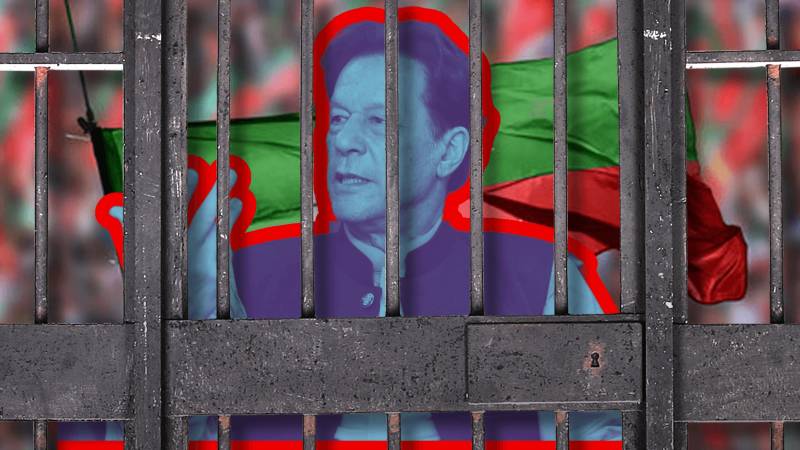
The Islamabad High Court on Monday directed the legal team of former prime minister and Pakistan Tehreek-e-Insaf (PTI) Chairman Imran Khan to refer to the special court trying him in the cipher case over rescinding a past order to hold his trial in jail.
A short judgement was read out by Islamabad High Court Chief Justice Aamer Farooq on Monday. The decision had previously been reserved.
During Monday's hearing, Imran's lawyer and former Punjab Governor Sardar Latif Khosa argued that Pakistan's then ambassador to the US Asad Majeed Khan had sent the cipher to the foreign office. He argued that Imran Khan was the country's chief executive at the time, which granted him certain powers. Moreover, he argued that the prime minister's oath empowers him to determine the classified information the public needs to know about.
Khosa contended that political parties united under the banner of the Pakistan Democratic Movement (PDM) wanted to remain 'slaves' of foreign powers. At this, Chief Justice Farooq directed Khosa not to name political parties.
The lawyer stated that it was a fact that a cipher was received and that as prime minister, Imran Khan presented it in the country's highest security forum, the National Security Committee, which deemed it as 'blatant interference' in Pakistan's internal affairs and decided to issue a demarche, both in Islamabad and Washington.
He added that it was the prime minister who would judge what poses a threat to the country.
When the bench asked Khosa to confirm what he had said, Khosa reiterated that if a prime minister judges classified information is in the public interest, he can decide to disclose it. He further argued that Imran took the parliament into confidence over the matter and did not violate his oath as prime minister.
Arguing that Imran should be presented in open court like former prime minister Zulfikar Ali Bhutto was presented in the court of Justice Maulvi Mushtaq, Khosa asked what were people afraid of. He added that Imran, too, has a right to take the stand in court.
The lawyer argued that the allegation that Imran Khan took the official and secret document with him was bemusing.
Raising a technical point, Khosa said that the order under which Imran was arrested did not even carry a date.
After Khosa completed his arguments, the court reserved the order.
Later, while disposing of the petition against transferring Imran Khan's trial to the Attock Jail, the court noted in a short order that the jail trial was approved in favour of Imran Khan over his oft-repeated concerns over security and that there was no apparent mala fide intentions in holding the trial in jail.
But if Imran has reservations over the trial in jail, he can raise them before the special court conducting the trial.
Imran is accused of retaining and misplacing the cipher document, deemed an official and classified document retained in the Ministry of Foreign Affairs for safekeeping. Thus, he is charged with violating the Official Secrets Act. Imran will be indicted in the cipher case by the special court on Tuesday.

